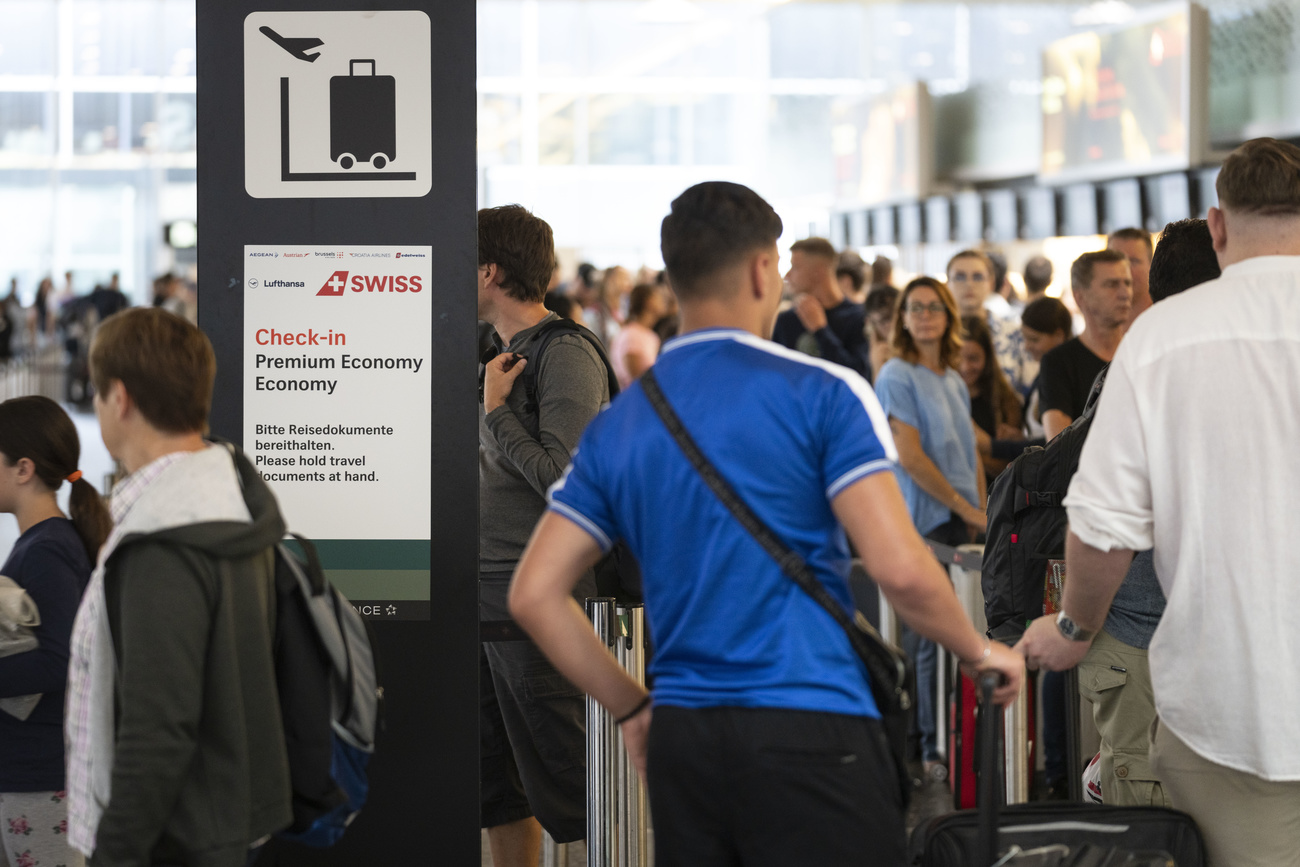Agriculture splits people and nations

While the World Trade Organization (WTO) squabbles over agricultural tariffs and subsidies in Hong Kong, swissinfo talks to two Swiss with opposing views.
Opinion is divided over how far Switzerland should go in defending the interests of its farmers.
Economic commentator Beat Kappeler believes the country has too many subsidised small farms that are not sustainable in the long run.
Heidi Bravo, who is in charge of the WTO dossier at the Swiss Farmers’ Association, argues that there is much more to Swiss farming than supplying agricultural products.
Kappeler calls for a more open agricultural policy, while Bravo contends that Switzerland cannot compete with prices in other countries because of the demands on agriculture.
swissinfo: Farming in Switzerland has received subsidies and protection for many years and there are repeated calls for more liberalisation. How do you feel about that?
Heidi Bravo: In Switzerland you have high production costs and these translate into high costs for products. They can never be competitive with production in other countries.
Beat Kappeler: I think till now Switzerland has maintained an artificial structure of too small farms… and has passed high costs on to consumers. It has also imposed high costs through public subsidies, which amount to about $50,000 on average in each farm. This is a situation which is not sustainable.
Another point is that no professional class in Switzerland has a guarantee of income. So why should just one class of earners in Switzerland have an absolute guarantee of income.
H.B.: Farmers in Switzerland have no guarantee of income. They get paid for the goods they produce and society wants.
swissinfo: Let’s turn to the WTO and the big stumbling block in Hong Kong – agriculture. What stance should the government take?
B.K.: It should fight for opening world markets for services and make the necessary concessions for agriculturally-intensive countries in the Third World and elsewhere to get what Switzerland and its future service industries need.
H.B.: Some big agriculture exporting countries, for example Brazil, want a liberal agricultural trade but they do not want to open their industry and their services. They want to talk about agriculture before talking about the rest.
Why should Switzerland give up agriculture and make just any deal without something in return?
swissinfo: So what kind of situation could you accept for Swiss farmers in terms of lowering trade barriers in this round?
H.B.: We agree all around the world that export subsidies have to be abolished because they distort world market prices but it must include all export subsidies and not just the traditional ones. We think there are steps which we can agree which have to do with international trade but we do not agree that countries like Switzerland as a net food importer should go into such agreements that help no one but some agrobusinesses in a number of countries.
swissinfo: Can you as an economist, Beat Kappeler, accept what Mrs Bravo is saying?
B.K.: I am very glad that export subsidies should be cut but so should internal subsidies that are trade distorting. A third point is tariffs. Swiss agriculture is protected seasonally by tariffs of up to 900 per cent of value. I think this is absolutely incredible to pretend to have access to world markets for industrial goods and services but to maintain such exorbitant tariffs. I think in all these fields important progress and concessions have to be made.
swissinfo: What kind of future do you see for Swiss farming?
H.B.: Swiss farming is in danger today. It depends on how international agreements like the WTO develop. It will also depend on bilateral agreements. And then we have to be clear. You can’t ask the farmers to produce food, to produce it organically, to protect the environment and not pay the price. You have to be coherent in policy and that is what we’re asking for from the government.
B.K.: Exactly. There are too many conflicting demands in agriculture that cannot be fulfilled. Let’s not promise the farmers that we will maintain them indefinitely. Let’s be very open and say for example that every farmer above 55 can stop working and receive five years of subsidies. In five years we will have a very rationalised agriculture.
swissinfo: Heidi Bravo, what do you think of this suggestion?
H.B.: It’s an old, old, old idea (laughs). It was never taken up by the government because if you do a calculation from 55 you get to 60. These people are out. Generally they have nothing other than the AVS [state old age pension] and you have to wait till you’re 65 for that. During the five years, who pays for them? Generally farmers don’t have big savings.
B.K.: One of the best-kept secrets of Swiss agriculture is that almost every farmer has a supplementary income from other activities… I think this is an absolutely generous solution. People in industry or services would not have five years of payments.
H.B.: [Farmers] don’t earn enough otherwise they wouldn’t have to do all this supplementary work. At the Swiss Farmers’ Association, we have another view of the world. We want our mountain agriculture and we are sure that the population in Switzerland wants it and needs it.
swissinfo-interview: Robert Brookes
There are about 65,000 farms across Switzerland compared with 80,000 15 years ago.
Some have disappeared, while others have been swallowed up by others.
The number of farms goes down by five every day.
The average income of a farm last year was SFr76,115.

In compliance with the JTI standards
More: SWI swissinfo.ch certified by the Journalism Trust Initiative












You can find an overview of ongoing debates with our journalists here . Please join us!
If you want to start a conversation about a topic raised in this article or want to report factual errors, email us at english@swissinfo.ch.